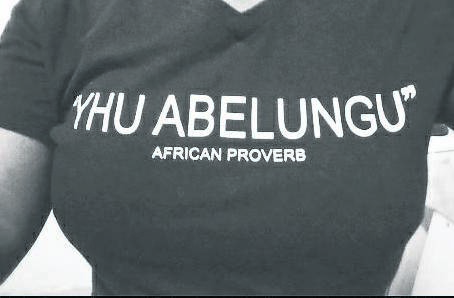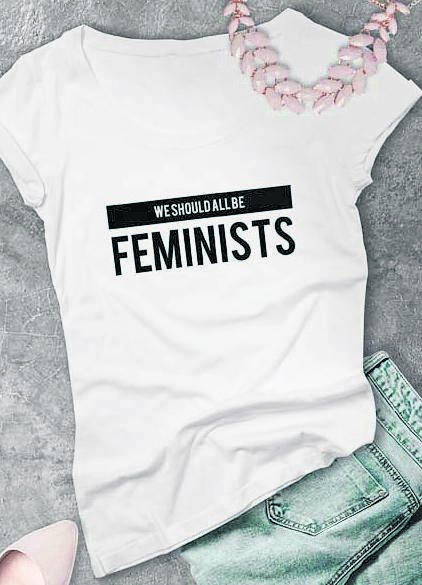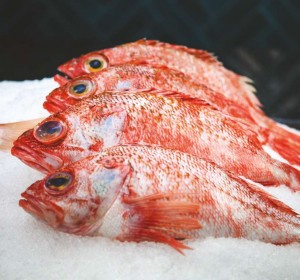
Wandisile’s Plett
A blog by Wandisile Sebezo, which appeared on News 24
Clothes have a long tradition of being used to highlight social inequality.

The black power activists of the 1960’s wore berets and single gloved fists to fight racial injustice in the US.
For her debut collection at Dior in September 2016, Maria Grazia Chiuri printed the title of Chimamanda Ngozi Adichie’s essay, We should all be feminists, on T-shirts.
Activists of the Rhodes Must Fall movement had T-shirts that read Yhuu Abelungu, for instance, which was calling out racism in higher education institutions.
There was even a more provocative one that said Bayadika Abelungu [Whites are an irritation/a nuisance], while others simply read We can’t breathe.
But even before printing slogans on T-shirts, cartoon portraits of influential figures, such as Che Guevara, American political activist Angela Davis and Steve Biko, have been donned by those who claim to be conscious of or support particular ideals.
 Writing in City Press on April 10 2019, African Fashion International founder and chief executive officer Precious Moloi-Motsepe asked whether African fashion was ready for the world, given that “African fashion is viewed as costume clothing that reminisces on a historical era that no longer has a place”.
Writing in City Press on April 10 2019, African Fashion International founder and chief executive officer Precious Moloi-Motsepe asked whether African fashion was ready for the world, given that “African fashion is viewed as costume clothing that reminisces on a historical era that no longer has a place”.
I want to argue that African fashion doesn’t have the luxury to be neutral.
Since time immemorial, our relationship with clothes has always been about belonging and asserting our collective identity.
And it seems even luxury customers are increasingly opting to be part of the broader political conversation.
As Moloi-Motsepe wrote: “It’s up to us to redefine fashion through a modern made-in-Africa narrative – where resources are valued for their ability to not only create wealth but also share it equally. Supporting modern African fashion dismantles traditional perspectives that subscribe Africa’s identity to one of assimilation and hardship.
“Africa’s potential in the global fashion marketplace is only as great as our ability to understand ourselves through our own lens of diversity, and stand out.”
As the world looks to Africa for production and consumption, we are in a better position to be part of the global project, while also raising our fists high in fighting for social justice.
Kudos to those African fashion designers contributing to the conversation with their craft.
Wandisile Sebezo is a writer and blogger at plett-tourism.co.za
This blog by Wandisile Sebezo appeared on News 24‘s website recently.

Wandisile Sebezo writes for Plett Tourism













